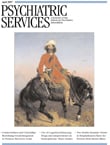Hope Springs Maternal: Homeless Mothers Talk About Making Sense of Adversity
In Hope Springs Maternal , author and researcher Jill Gerson presents the stories, gleaned from in-depth interviews, of 24 homeless mothers living in the New York City shelter system. Like much qualitative work that has been done before, Gerson's interviews give the reader a personal feel for the struggles that women face as they try to free themselves and their families from the limitations of poverty and scarce resources.
Although Gerson herself concludes that longitudinal research is needed, she attempts to give her readers the next best thing by asking the women about their past, present, and future lives. Consequently, we receive a well-articulated view of the personal and societal factors that contributed to the women's current homelessness, the issues that they face as they attempt to improve their lives, and their dreams and hopes for the future.
Regrettably, for a reader who is well versed in studies of homelessness, there is little new in these accounts. Not surprisingly, many women report histories of inadequate housing, conflict within the family, and personal violence, which all lead to forced and often premature independence. In the present, women struggle with a host of financial pressures, health stressors, fears of losing custody of their children, and issues of diminished self-worth and stigma. Future concerns focus on plans and worries about achieving financial independence and on aspirations for being able to provide a better childhood for their children than they themselves have had. Although these findings are not new, they are well articulated and clearly presented. In that sense, these findings make an outstanding introduction to the complexities of homelessness in general and the struggles for women in particular.
In addition, Gerson does make a more unique and original contribution to our understanding of homelessness in two areas. The first is in her discussion of self-esteem and the various factors that influence how women in the shelter feel about themselves. Gerson identifies five factors that mediate women's feelings of self-worth: the physical environment of the shelter; relationships with shelter staff; social ties with friends, men, and family; relationships with others in the shelter; and plans for the future and for children. Given that women who enter the shelter system often have histories of being and feeling devalued, a clear understanding of the factors that might mitigate some of the negative impact of homelessness on perceptions of self-worth is a useful framework to guide the actions and interventions of shelter staff and other professionals who work within the care system for homeless persons.
Finally, Gerson offers a skillful reframing of how we understand the shelter experience itself. Rather than viewing the decision to seek shelter as a failure, Gerson views it as a healthy and active coping strategy. Women are not forced into homelessness but choose living in a shelter as a transition to better options for themselves and their children. Time in the shelter gives women the opportunity to "turn adversity into adaptive growth." In this sense, the shelter experience is part of the developmental transition to full adulthood and healthy parenting. By giving women and providers a positive way to view the shelter experience, Gerson herself contributes a thoughtful mitigating variable that might help diminish the negative stigma associated with homelessness.



